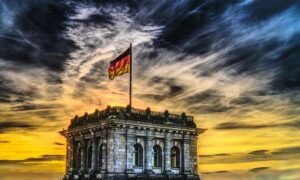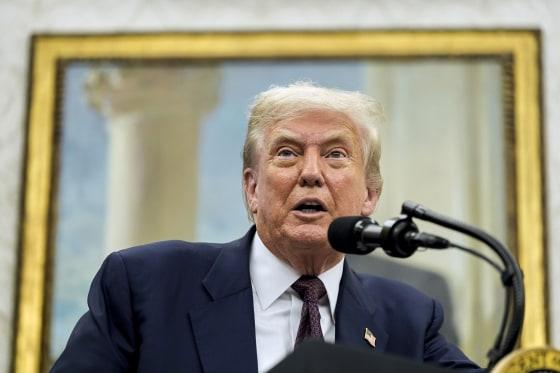Examining Federal Authority Over Washington, DC: Legal Boundaries and Political Ramifications
Understanding the Constitutional Framework Governing Washington, DC
Washington, DC occupies a singular position within the United States political system, characterized by a delicate balance between local self-rule and federal oversight. Unlike the 50 states, the District operates under the direct jurisdiction of Congress, which retains ultimate legislative authority. While the Mayor and the DC Council oversee municipal operations, their powers are circumscribed by federal law. Importantly, the President does not possess unilateral authority to impose federal governance over the District; such actions require congressional consent, reflecting the constitutional design to maintain the capital as a neutral federal enclave and to prevent executive overreach.
Legal scholars consistently highlight that any substantial alteration to DC’s governance structure or federal intervention must be enacted through legislation rather than executive fiat. Key elements of this framework include:
- Congressional supremacy: Congress controls the District’s budget and holds the power to nullify local legislation.
- Presidential limitations: The President’s role is largely ceremonial unless backed by congressional authorization.
- Local administration: Elected DC officials manage day-to-day services within boundaries set by federal statutes.
| Entity | Authority | Constraints |
|---|---|---|
| President | Executive oversight | Requires Congressional approval for federal control |
| Congress | Supreme legislative power over DC | Responsible for laws and budgetary decisions |
| DC Local Government | Municipal management | Subject to Congressional review and intervention |
Legal Complexities and Congressional Oversight in Federal Interventions
Intervening federally in Washington, DC’s governance involves navigating a labyrinth of legal challenges and congressional scrutiny. While the President may deploy federal law enforcement or military forces under specific statutes such as the Insurrection Act, these actions often ignite debates over the separation of powers and the permissible extent of federal authority in the capital. The Posse Comitatus Act further restricts military involvement in civilian law enforcement, underscoring the legal safeguards protecting DC’s local autonomy.
Congress plays a critical role in supervising and potentially curbing executive actions affecting the District. This oversight is exercised through:
- Control over funding: Congressional approval is necessary for financing federal deployments or initiatives in DC.
- Legislative scrutiny: Congressional committees can hold hearings and investigations to monitor executive conduct.
- Statutory boundaries: Laws enacted by Congress define and limit federal authority within the District.
| Area | Legal Foundation | Congressional Role |
|---|---|---|
| Federal Deployment | Insurrection Act, DC Code | Approves budgets, conducts oversight hearings |
| Local Governance | Home Rule Act (1973) | Amends legislation, controls budget |
| Law Enforcement Powers | Posse Comitatus Act | Restricts military involvement in policing |
Impact on DC Residents and the Struggle for Local Autonomy
Federal encroachment on Washington, DC’s local governance raises profound questions about democratic representation and the rights of its residents. Despite a population exceeding 700,000, DC lacks voting representation in Congress, a disparity that fuels ongoing debates about its political status. Increased federal oversight threatens to erode the authority of the DC Council and Mayor, who are elected to address the city’s unique needs. This tension reflects a broader national conversation about balancing federal interests with the District’s right to self-determination.
Potential repercussions for the community include:
- Diminished capacity for locally tailored policies addressing community priorities
- Greater federal influence over budgeting and law enforcement decisions
- Heightened risk of political disenfranchisement on issues directly affecting residents
- Obstacles to the ongoing movement for DC statehood and full congressional representation
| Governance Element | Local Control | Effect of Federal Oversight |
|---|---|---|
| Budget Authority | Determined by DC Council, reflecting community needs | Subject to Congressional approval, limiting autonomy |
| Law Enforcement | Managed by local police under mayoral authority | Potential federal oversight or National Guard involvement |
| Legislative Power | Local laws enacted by elected officials | Congress retains veto authority |
Strategies for Harmonizing Federal Oversight with Democratic Governance
Experts in governance and constitutional law advocate for a balanced approach that respects both the necessity of federal oversight and the democratic rights of DC residents. While federal involvement may be warranted in exceptional circumstances, unchecked power risks undermining local self-governance. To safeguard democratic principles, specialists recommend implementing clear legal protections that ensure federal actions are transparent, narrowly tailored, and subject to judicial and legislative review.
Proposed initiatives to maintain this equilibrium include:
- Strengthened Congressional Oversight: Establishing explicit criteria and processes for federal intervention.
- Expanded Local Autonomy: Granting DC greater control over fiscal and legislative matters.
- Regular Public Consultations: Facilitating forums for residents to voice concerns regarding federal decisions.
- Independent Oversight Bodies: Creating panels to evaluate the impact of federal actions on democratic governance.
| Dimension | Federal Oversight | Democratic Governance |
|---|---|---|
| Decision-Making | Centralized authority | Local, community-based |
| Accountability | Federal agencies and Congress | Locally elected representatives |
| Impact on Residents | Indirect influence | Direct participation |
Conclusion: Navigating the Complexities of Federal Control in the Nation’s Capital
The ongoing discourse surrounding the possibility of former President Donald Trump asserting federal control over Washington, DC underscores the intricate legal and political challenges inherent in the District’s governance. Despite Trump’s continued influence in certain political arenas, constitutional provisions and legislative frameworks present formidable barriers to any unilateral federal takeover. This debate encapsulates broader tensions between preserving local self-rule and accommodating federal interests, highlighting the symbolic and practical significance of governance in the nation’s capital. As this issue evolves, it remains a focal point for discussions on democracy, federalism, and political power in the United States.







